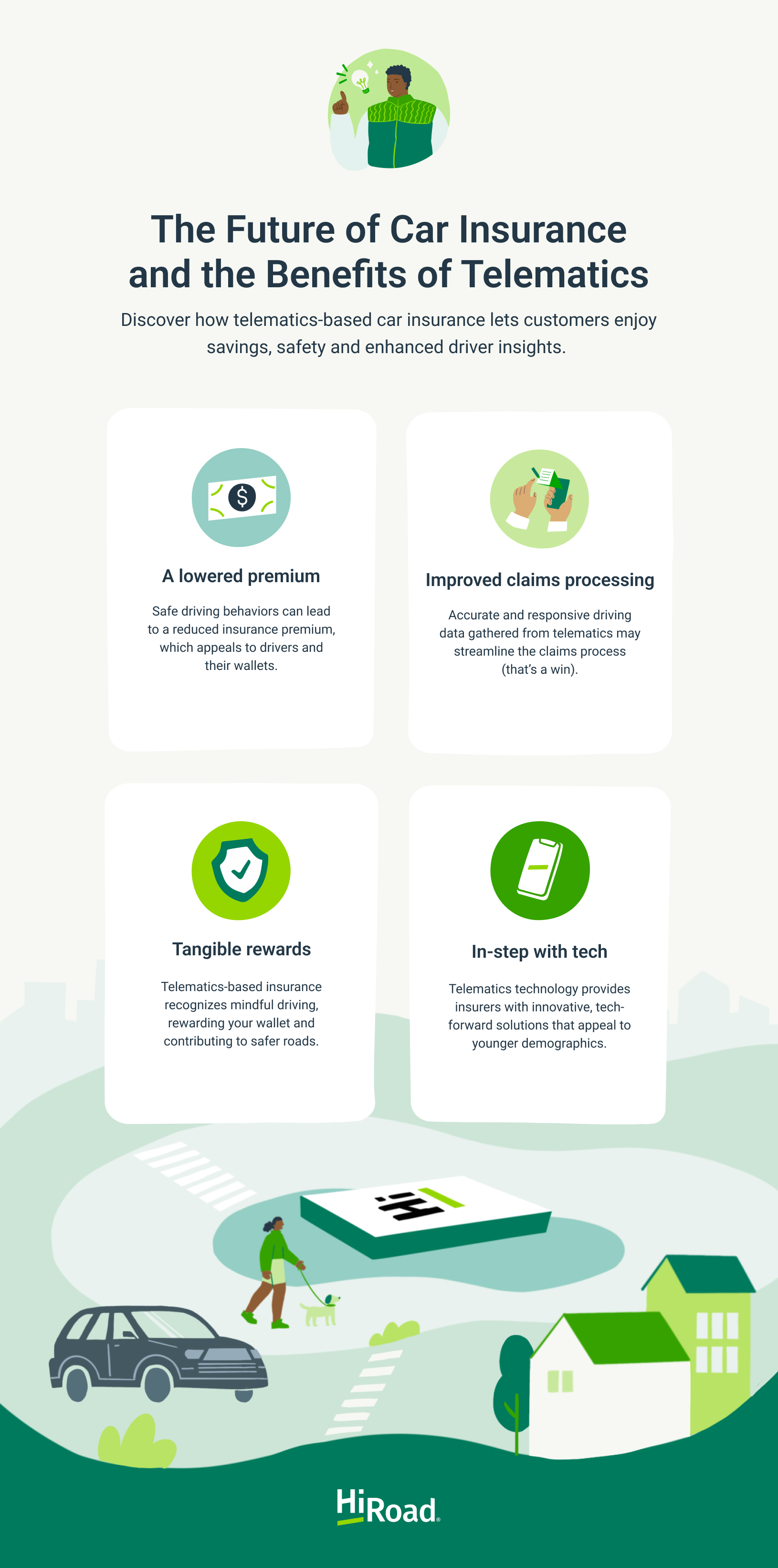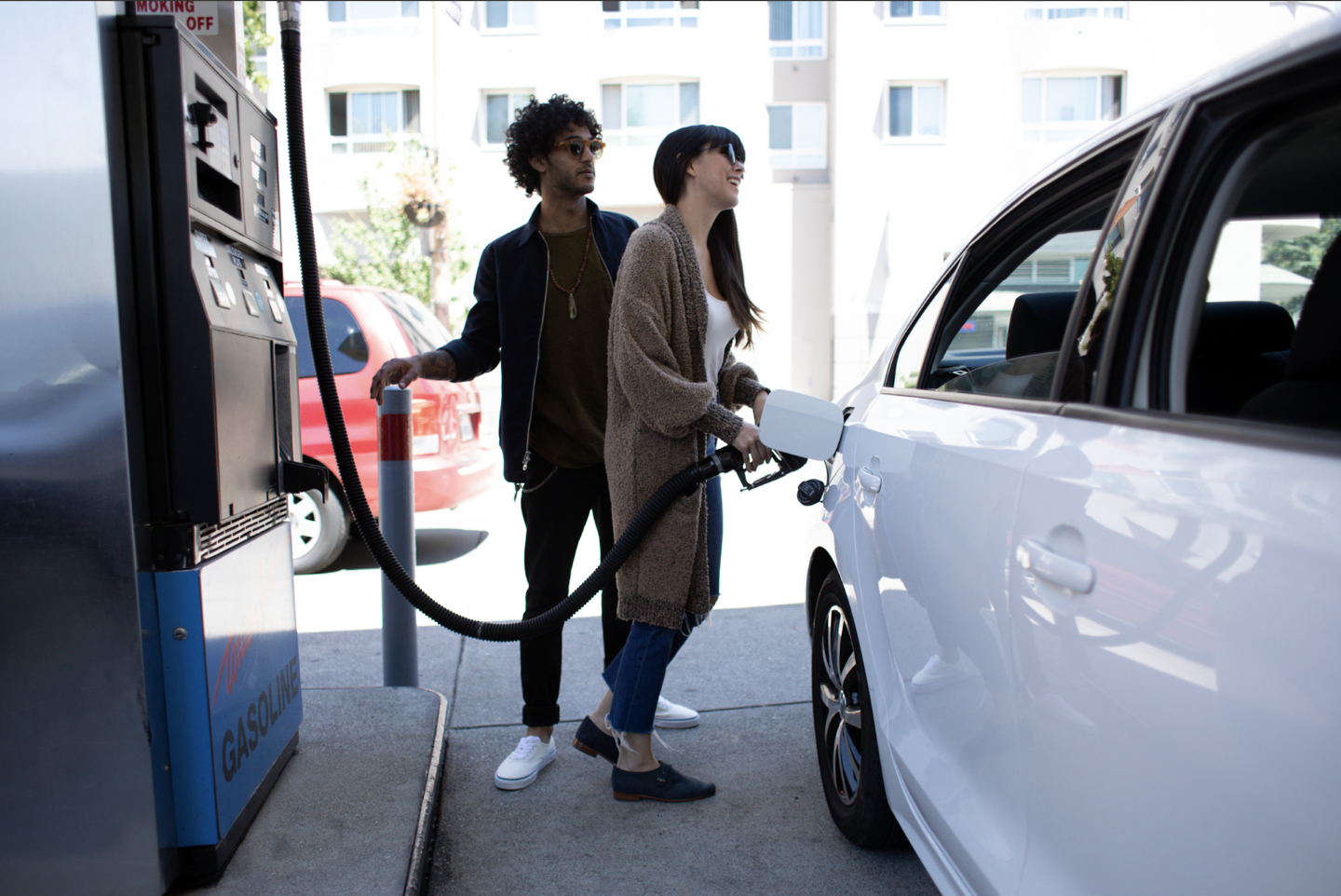Telematics auto insurance: balancing privacy and savings
June 15, 2023
The cost of living.
The cost of groceries.
The cost of car insurance.
These days (thanks to
inflation and other economic factors) all three have one thing in common: an increase in price. According to a recent study by J.D. Power, auto insurance costs rose 14.5 percent in February 2023, more than twice the rate of inflation—and consumers are taking notice.Powered by telematics technology, usage-based car insurance (UBI) is becoming popular for drivers. Why? These insurance models utilize data from your car and devices to shape car insurance premiums, which is good news for safe drivers.
Telematics car insurance, powered by data that recognizes certain driving behavior, offers possible saving options for drivers looking to save on their insurance bill. But drivers in this digital age may wonder, do the savings outweigh any potential privacy concerns?
Concerns about the privacy and security of your personal information are valid. With data breaches frequently in the news, it’s understandable that privacy would be top of mind for drivers looking at UBI car insurance which accesses driver data to shape premiums.
Before you write off UBI altogether, we’ll share why it’s important to understand the pros and cons of telematics and its application to car insurance. Because, more often than not—with the right auto insurer—the potential for savings is high and your personal information is secure.
The pros and cons of telematics-powered car insurance
Before we cause any confusion, you can think of telematics car insurance as your standard usage-based car insurance. Telematics is the secret sauce to UBI—it’s technology that recognizes your driving speed, miles driven, when you drive and if you’re distraction-free; all factors that can impact your car insurance premium.
So what are the perks of telematics-powered insurance options? Here’s a list of just a few.
Lowered premiums are one of the bigger perks that come to mind for this type of insurance. Since telematics tech recognizes certain driving behaviors for UBI consumers who practice safe driving, the idea that their safe driving can lower their insurance premium is appealing.
Tangible reward and savings over time encourages drivers to build better driving habits. As policyholders begin to become more mindful of their driving behavior and how telematics plays a role in it, drivers start to roll in the benefits. Telematics insurance can promote self-awareness and may help drivers make positive changes—such as driving at safe speeds or reducing risky driving behaviors, contributing to safer roads.
Better data for claims processing and accident reconstruction is another added benefit to insurers. This may allow for a more streamlined claims process because information such as vehicle speed, force of impact and other relevant factors can help insurance companies make informed and efficient decisions.
Improved driving behavior may feel like a stretch for drivers with an insurance policy built around telematics. But because UBI and behavior-based car insurance rewards those who practice safe driving, folks are more inclined to repeat those safe driving behaviors.
Integrated tech is a win-win for younger drivers looking for car insurance solutions that are savvy enough to keep up with their lifestyles. Some insurers recognize this need for tech-forward solutions, offering mobile-friendly policy access to customers.
Car insurance companies offering telematics-based policy options know that there are hurdles to overcome when it comes to adopting these insurance choices. One of the biggest hurdles is privacy concerns. Let’s break it down.
It’s natural to be concerned about your privacy, especially when it comes to who or what has access to your data. One of the biggest challenges associated with UBI or any telematics insurance is that data privacy can scare many drivers away from purchasing a policy.

For example, Millennials and Gen Z have grown up with technology and have come to expect digital solutions to their day-to-day problems. Since behavior-based insurance is an ideal fit for those looking for a customized car insurance experience, insurers should educate their customers and be transparent about what information they're collecting and why to alleviate understandable privacy concerns.
Along with data privacy concerns, drivers may have additional concerns over the lack of control of their data and its use beyond setting premiums and use within the scope of car insurance. With data security and privacy risks becoming prominent themes in the digital age, insurers need to provide confidence to their customers (more on that later).
Lastly, telematics data and UBI car insurance intention is to incentivize safe driving and help reduce risk for insurance companies. Unfortunately, this can create undue pressure on drivers to constantly be at their best behind the wheel.
Policyholders often have concerns that incidents of risky behavior or mistakes could impact their rates, even if they are considered responsible drivers. Our goal is to encourage your safe driving, not focus on punishing you for those “oops” moments.
To someone looking at the pros versus cons of telematics insurance, it may seem like a lot of red flags. But with more insurers offering this type of car insurance to drivers, it’s important to know what to look for, and how to research what data is used when getting insurance quotes.
What can car insurance companies do about it?
Most car insurers offering telematics-based policies understand the importance of transparency when it comes to collecting data. To help alleviate privacy concerns, insurers can:
Provide clear explanations to how driver data is collected, stored and used
Inform policyholders about the types of data collected
Be transparent about monitored data points to address misconceptions
Outline data collection practices—emphasizing how and where that data is used
These practices don’t have to share trade secrets or business inner workings. Still, they should be transparent and clear enough for customers to understand that their data isn’t being shared or used for unrelated purposes.
For insurance customers, it's important to understand that telematics insurance companies must adhere to specific data protection laws. Verifying how your insurer adheres to the legal frameworks and regulations to protect your policy can help alleviate privacy concerns—including data encryption, secure storage practices and strict access controls. Most insurers may host privacy and security practices within their own website. For example, you can easily find similar information on HiRoad's website.
By alleviating privacy anxiety for drivers around telematics and behavior-based car insurance, customers are able to focus on bigger and better things like driving safely and earning rewards along the way.
A balance in all things, even car insurance
The car insurance landscape is rapidly evolving. J.D. Power also reported that UBI options are now offered to 22 percent of insurance shoppers and are purchased 18 percent of the time. And while the adoption of telematics and its application to car insurance is gaining popularity, so is the debate between privacy and savings—particularly with younger generations (Millennials and Gen Z).
While those data concerns are valid, it’s important to recognize the benefits that may outweigh those immediate concerns. Telematics car insurance can personalize your car insurance premiums based on
how you drive, not who you are, by recognizing your safe driving behaviors.UBI and behavior-based insurance that utilizes telematics also helps streamline the claims process and accident reconstruction, reducing premiums for responsible drivers and contributing to a more safe driving environment for others on the road.
It’s the responsibility of insurers to address privacy concerns by being transparent, implementing security practices and adhering to privacy laws. As they do this, they can foster trust in their customers and alleviate privacy anxiety.
We understand at HiRoad that there’s no one clear-cut answer to whether or not someone will opt for telematics-based car insurance. It’s a complex issue. As a car insurance company that understands this, we have and will commit ourselves to helping drivers navigate both the benefits of behavior-based car insurance and how good driving behaviors may not only help you save on your insurance bill every month, creating ripples of good on and off the road.
The information in this article was obtained from various sources not associated with HiRoad®. While we believe it to be reliable and accurate, we do not warrant the accuracy or reliability of the information. HiRoad is not responsible for, and does not endorse or approve, either implicitly or explicitly, the content of any third party sites that might be hyperlinked from this page. The information is not intended to replace manuals, instructions or information provided by a manufacturer or the advice of a qualified professional, or to affect coverage under any applicable insurance policy. These suggestions are not a complete list of every loss control measure. HiRoad makes no guarantees of results from use of this information.
Stay on the path
Get HiRoad in your inbox
Share your email to get the latest about our community of mindful drivers.



